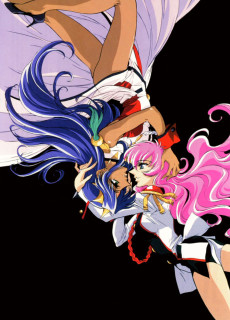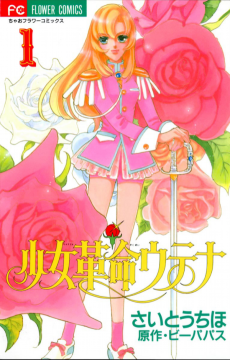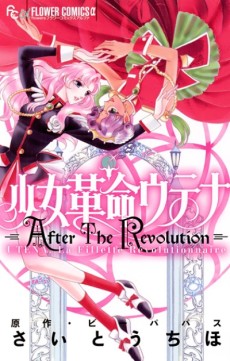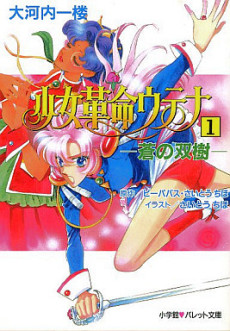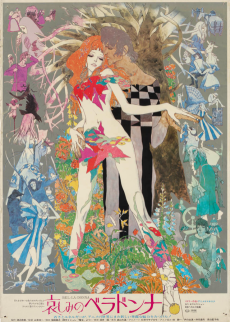SHOUJO KAKUMEI UTENA
STATUS
COMPLETE
EPISODES
39
RELEASE
December 24, 1997
LENGTH
23 min
DESCRIPTION
Just after Utena's parents died, she was consoled by a prince who gave her a ring with a rose crest on it. Utena was so impressed by the Prince that she vowed to become one herself one day. A few years later, Utena is attending Ohtori Academy where she gives all the teachers headaches because she dresses in a boy's uniform so she can be like the prince she met long ago.
After Utena's friend is insulted by a member of the Student Council, Utena fights in a duel for her friend's honor. Utena's rose crest allows her to enter the dueling arena, where Utena wins the duel and becomes engaged to the Rose Bride. Unknowingly, Utena is pulled into a series of duels with other members of the Student Council for the possession of the Rose Bride. As she becomes fond of Anthy, the Rose Bride, she must fight to keep her friend safe and to discover the horrifying secret behind Ohtori Academy.
(Source: Anime News Network)
CAST
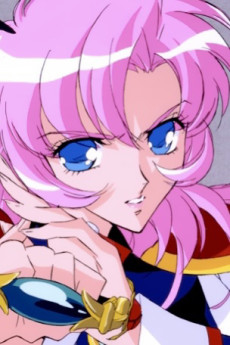
Utena Tenjou
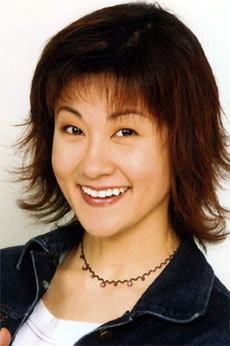
Tomoko Kawakami
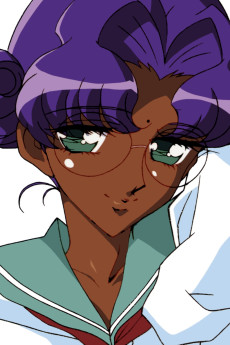
Anthy Himemiya
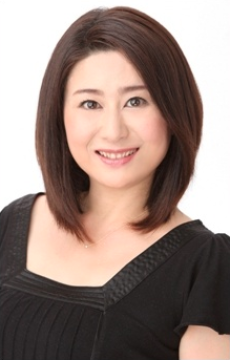
Yuriko Fuchizaki
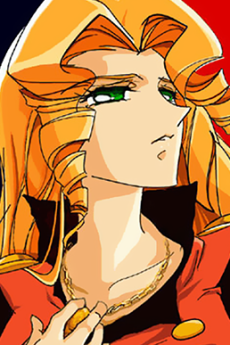
Juri Arisugawa
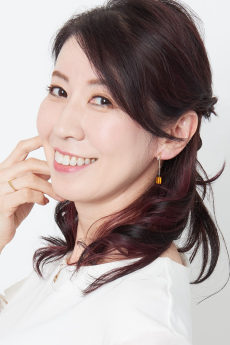
Kotono Mitsuishi
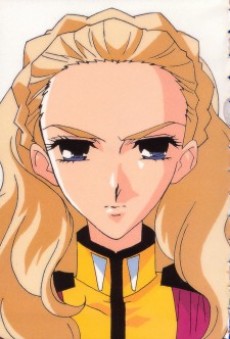
Nanami Kiryuu
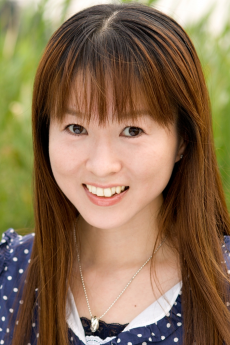
Yuri Shiratori

Chuchu
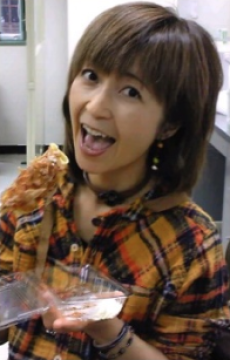
Satomi Koorogi
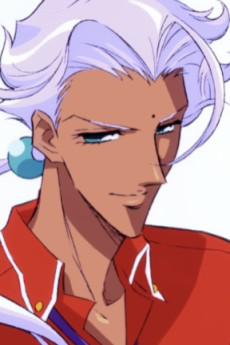
Akio Ootori
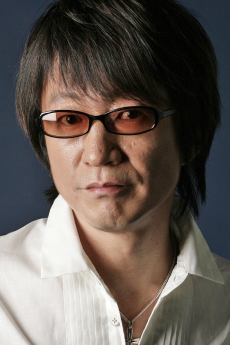
Juurouta Kosugi
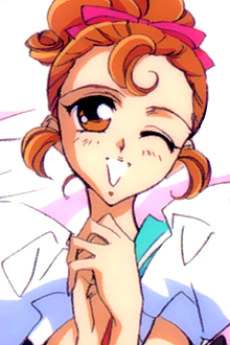
Wakaba Shinohara
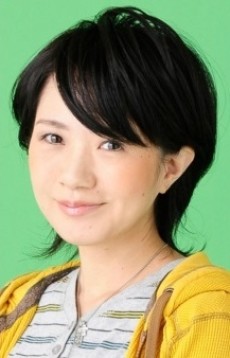
Yuka Imai
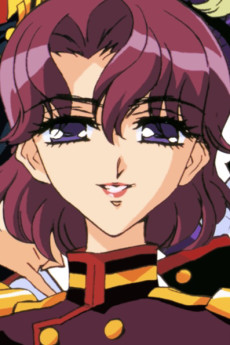
Shiori Takatsuki
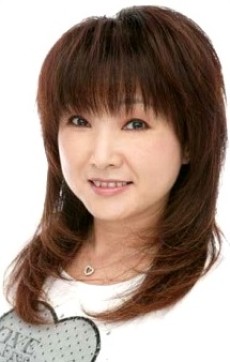
Kumiko Nishihara
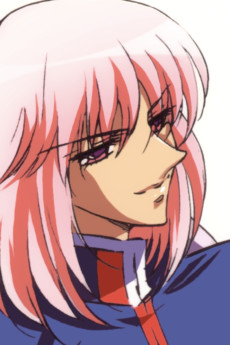
Souji Mikage
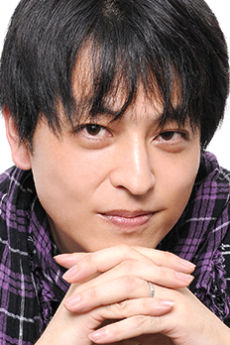
Hikaru Midorikawa
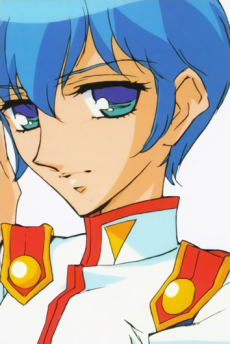
Miki Kaoru
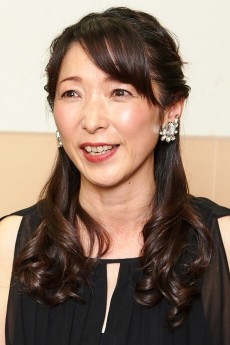
Aya Hisakawa
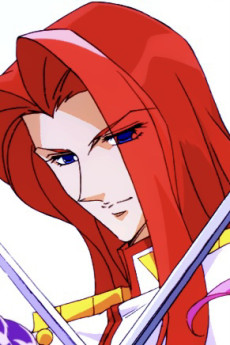
Touga Kiryuu
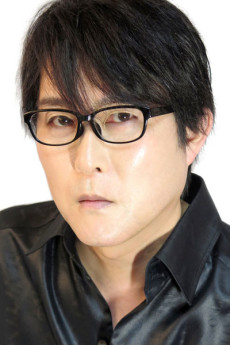
Takehito Koyasu
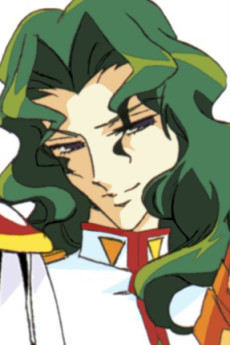
Kyouichi Saionji
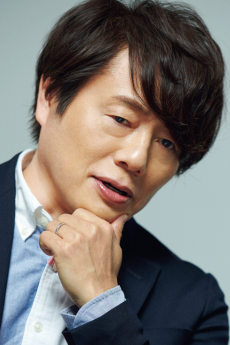
Takeshi Kusao
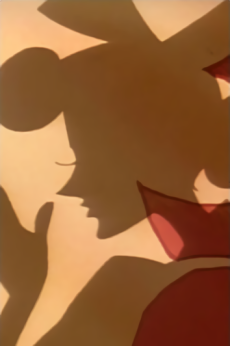
A-ko
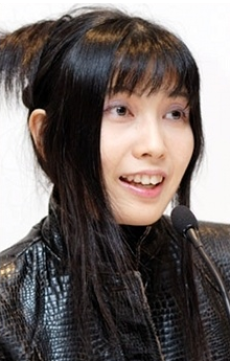
Maria Kawamura
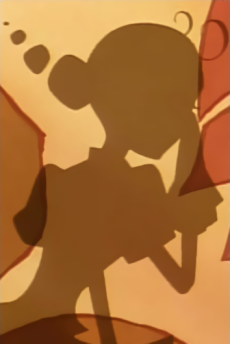
B-ko

Satomi Koorogi
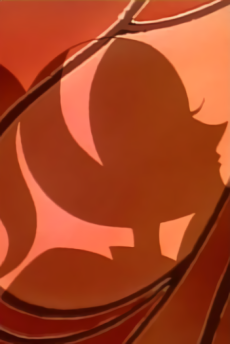
C-ko

Kumiko Watanabe
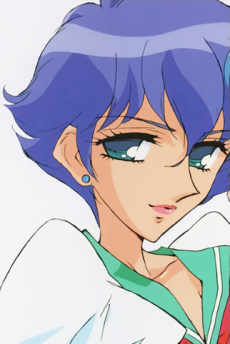
Kozue Kaoru
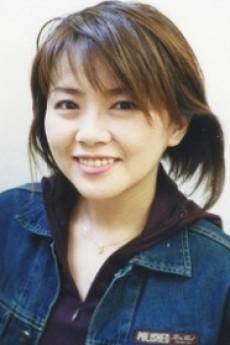
Chieko Honda
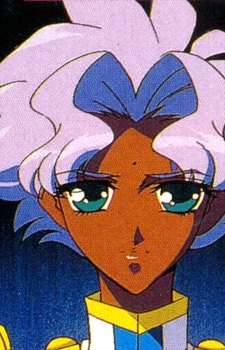
Dios
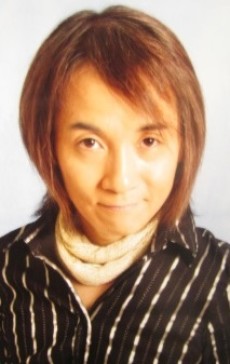
Hiro Yuuki
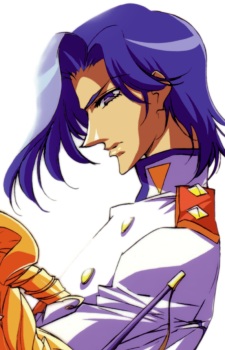
Ruka Tsuchiya
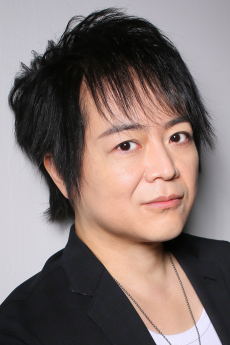
Nozomu Sasaki
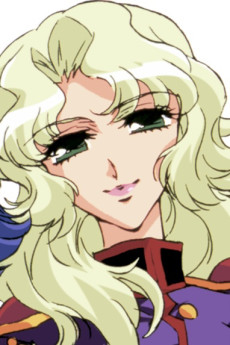
Kanae Ootori

Ai Orikasa
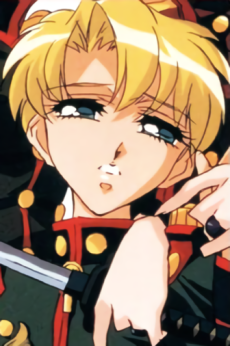
Mitsuru Tsuwabuki
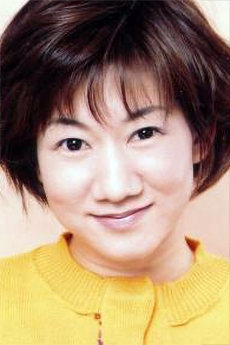
Aki Uechi
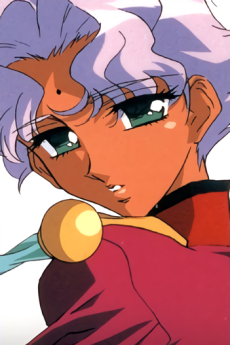
Mamiya Chida

Maria Kawamura
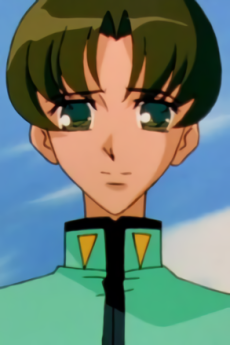
Tatsuya Kazami
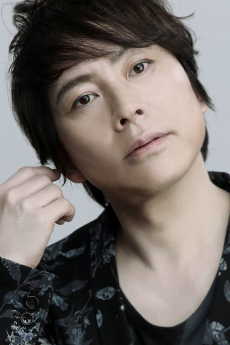
Ryoutarou Okiayu
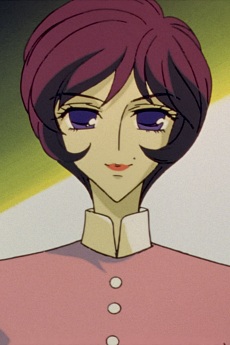
Tokiko Chida
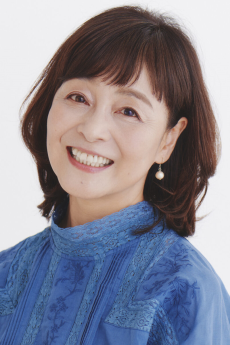
Noriko Hidaka
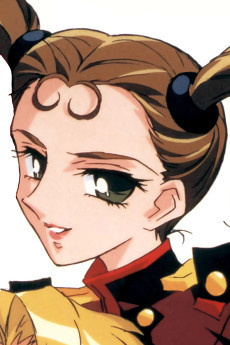
Keiko Sonoda

Akira Nakagawa
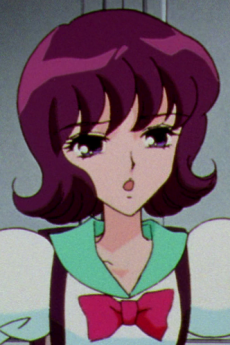
Mari Hozumi

Chinami Nishimura
EPISODES
Dubbed
RELATED TO SHOUJO KAKUMEI UTENA
REVIEWS

TheRealKyuubey
80/100One of the most important anime ever made, but it's not flawless.Continue on AniListOnce upon a time many years ago, there was a little princess, and she was very sad, for her mother and father had died. Before the princess appeared a traveling prince, riding upon a white horse. He had a regal bearing and a kind smile. The prince wrapped the princess in a rose-scented embrace, and gently wiped the tears from her eyes. “Little one,” he said, “Growing up alone in such deep sorrow, never lose that strength or nobility, even when you are a young lady. I give you this to remember this day… We will meet again. This ring will lead you to me, one day.” Perhaps the ring the prince gave her was an engagement ring… This was all well and good, but so impressed was she by him that the princess vowed to become a prince herself some day. But was that really such a good idea?
Many years later, Utena has grown into a young lady, and she has not let go of her nobility, dressing in a princely boy’s uniform as she enters middle school at Ohtori Academy. Her style of dress and noble disposition have earned her the mixed attention of her peers, and the ire of the teaching staff. One day, after heroically saving a demure classmate named Anthy from her abusive boyfriend, that boy notices the ring on her finger and challenges her to a duel for her new friend’s honor.
It turns out she wins more than just Anthy’s honor, though… She’s won her engagement, which is something every member of the student council is eager to obtain. As an outsider in this conflict, Utena will have to find out why they want her, why they disregard her feelings, and why they keep calling her The Rose Bride… And she’ll have to do so before the end of the world comes for her.
I’ve stated in previous reviews that JC Staff is generally really good at taking shoe-string budgets and making anime that are, at the very least, decent looking(Ookami-san being the exception that proves the rule). Revolutionary Girl Utena is the pinnacle of their abilities. The animation is low budget and limited by the technology of the nineties, but the majority of it is still smooth and fast-paced, making for some absolutely stunning visuals. There are clunkier moments, particularly in the first story arc, but the staticky frames never feel wasted, thanks to the brilliant use of framing and drop dead gorgeous imagery that’s always on display. Because of this, it looks a lot more expensive than it actually was.
Unfortunately, some of the most impressive looking shots are reused and recycled over and over again, and while it’s easy to excuse the epic stair-climbing scenes for this, as they’re primarily used in the same basic context of magical girl transformation scenes, it’s a lot harder to get over seeing the same exact fight animations in every single action scene. That’s only one minor hiccup, though… The actual character animation is intricate, and while I wouldn’t exactly call a lot of it graceful, you do often get the impression that every single piece of movement from the cast… Be it facial expressions or even subtle body language… is completely deliberate and carries it’s own distinct meaning. The CGI… And yes, there’s CGI in a 1997 show… is rare, but flawless, with the giant upside-down castle in the sky being the perfect example..
But even amongst all of that visual wonder, Utena is at it’s best with it’s character designs. The characters are highly distinctive, memorable, and instantly recognizable, even when it concerns the side and supporting characters. The ones who are tied most directly to the trial of the Rose Bride… Those being Utena, Anthy, and the entire student council… Are color coded, with each character’s hair matching a different color of the rainbow, and with each color representing an important aspect of that character’s personality and story arc in accordance with the teachings of a certain religion(and no, I’m not going to tell you which one). Their designs have become iconic, and deservedly so.
The music has also become iconic, and once again, it’s not very difficult to see why. In it’s downtime, Utena plays with all the music-box type tunes that you’d expect from a shoujo serie There’s a lot of light strings, like violins and harps, and a lot of piano and organ-based tracks as well. It’s nice for what it is, but it would be kind of boring if that were all there was to Utena’s score. Thankfully, when the action scenes start, that’s when this shit kicks into high gear. This is just my personal preference, but a Greek chorus is always a welcome addition to a story, and Utena goes the extra mile of adding a rock opera-type edge to it, making these songs both meaningful AND head-bangingly awesome at the same time. Their job is to get your blood pumping, and they do their job so well that at some points, they can actually lead to disappointment over how quickly and easily a lot of Utena’s duels end.
The opening, Rainbow Revolution(Or Rinbu in some texts, but it makes more sense in context the other way), is easily one of my favorites in terms of both it’s song and it’s video. The song is fast and powerful, has a great beat, and is catchy as all hell. The video keeps great pace with it, showcasing the absolute best of the series’ animation and metaphorical imagery, all while giving every single one of the main characters their chance to shine. The ending themes are also perfectly fine and serviceable, but I admit I skip them almost every single time they play. I’m not saying they’re bad… Far from it, they’re beautiful… But unlike the opening, they’re just not good enough to hold up against my desire to see what happens next in the story.
As for the English dub… Hoo boy, that English dub. Well, you’re going to hear the gospel from both sides of this argument, with fans claiming that they grew up with it and that it’s important to them, and its many many MANY haters saying it’s poorly acted melodramatic tripe. Well, I’m going to have to settle on both sides of the debate on this one. Much like Higurashi, and for somewhat similar reasons, I love the English dub of Utena BECAUSE of how awful it is.
Let me try to explain this through example; The worst performer in this dub by far is Leah Applebaum, who plays Nanami, the proverbial butt-monkey of the series and little sister to one of it’s main characters. Her only other claim to fame in the voice acting world is a single episode of Pokemon, and with this performance, that’s probably a good thing. Her delivery is loud, over the top and hammy, and she over-acts like it’s about to go out of style. She constantly emphasizes every other syllable she says, like a first time stage performer who’s trying way too hard… And failing miserably… To use iambic pentameter. It’s annoying, it’s ball-crushingly terrible, and it’s my favorite performance in the entire dub. Like, for realsies.
As heavily allegorical and fantastic as Revolutionary Girl Utena is, it never feels like a normal story, and it’s characters never really feel like real people, aside from Utena herself. It feels, from beginning to end, like a stage play, and I mean that in the best possible way. It’s melodramatic down to it’s very core, and because of this, the unnatural acting from most of the cast actually serves to express their emotions even more strongly. Nanami, as my chosen poster child, is one of the most melodramatic and annoying characters in the cast, so Applebaum’s performance… Which would make me wish death upon her in any other anime… Is an oddly perfect fit.
The same could be said about every character, really. If an actor’s performance sounds disingenuous and dead inside, it’s because the character is disingenuous and dead inside. If a performance sounds stiff and stilted, that’s probably because the character is hiding a lot of emotional turmoil behind a facade of pride and strength. Rachael Lillis plays the main role as Utena Tenjou, and at times, she can be a little flat and wooden in her delivery, particularly in the first story arc. Then again, it’s kind of to be expected when you realize that she’s playing the only down-to-earth character in a cavalcade of looney toons, basket cases and sociopaths. Besides, whenever she’s called upon to do so, her nuanced emotions are firmly delivered.
While most of the underwhelming performances do get better as the series progresses, there are only two performances in the dub that are genuinely, unequivocally good… But one of them’s just a recurring side character(played by Lisa Ortiz) and the other’s Crispin Freaking Freeman, who really needs no introduction or fanfare to accompany his name. Overall, the original Japanese track is objectively better in pretty much every way, so it’s the version I have to recommend… But to those of us who appreciate it, the charm of the English dub is a hard thing to replicate.
So… When you ask people who’ve seen Revolutionary Girl Utena to tell you whether you should watch it or not, you’re going to get answers that tend to fall into one of two categories. The first category, and by far the more common one, will be “It’s weird and bat-shit crazy, stay the hell away from it.” The other category will tell you “It’s one of the most important anime ever made, and it’s a far more rewarding experience than most people realize.” I fall more into the second category, but I can totally understand the sentiment of the first one… This show IS bat-shit crazy and hard to understand, especially for the people who made the mistake of watching the movie first.
To understand why Utena is the way it is, you have to understand where it came from. The original concept was conceived by a five-person group who called themselves BE-PAPAS, and they aimed to turn their idea into both a manga series and a televised anime series. They handed directorial responsibility of the series over to one of their members named Kunihiko Ikuhara, whose previous experience had consisted of several episodes of Sailor moon. Fearing that Utena would be his first and last major project, he jam-packed it with as much symbolism, subtext, and allegorical ideas as he possibly could, somehow successfully weaving all of his brain-children into one mostly cohesive and gleefully mind-altering story.
Deciphering that story is no small task either, and I dare-say that even after multiple viewings, I’ve only managed to scratch the surface of it… And I wouldn’t have even gotten that far if not for the writings of people like Hope Chapman and Ryan Haeker. In it’s 39 episode run, Revolutionary Girl Utena runs the gamut of such complicated topics as heaven and hell, abuse, psychosexuality, incest, self-realization, gender roles, homosexuality… And much, much more. These concepts are explored through the bevy of likeable yet heavily flawed characters, their often unsettling backstories, and their true motivations that often extend far beyond the desire to see the end of the world.
Most of these concepts are explored by the titular character, Utena, as she either struggles with them in her own mind or encounters them in other people. She’s an astoundingly well written and progressive character, a deliberately normal human being who’s as virtuous and benevolent as any hero should be, but at the same time deals with the same very real teenage insecurities that fictional characters so rarely exhibit. She walks a fine line between feminine and masculine ideals, even as she finds herself caught between the extremist male stereotype and the extremist female stereotype towards the end of the series. She’s constantly tempted to conform to other peoples’ ideals, and while she thinks she’s the only duelist who’s truly fighting for Anthy’s best interests, she may actually be forcing her own ideals onto the rose Bride.
But deciphering this series is NOT as easy as a simple character study. It requires extensive knowledge of different philosophies, religions and psychological theories, none of which you’re given any help with identifying. The easiest parts come when huge clues are dropped in episodes, and by characters, that are entirely unrelated to the subject you’re trying to understand.
For example, and a bit of a spoiler, there’s a plot point towards the end where the main antagonist takes several characters for rides in his car, after which they come out acting more confidant, more self-assured, and more threatening. So, what’s going on here, exactly? Is his car so awesome that riding in it is a life changing experience? Well, to understand this, you have to jump back several episodes, to a story where a very young boy is asking people what it means to be grown up. He’s told by many people that being grown up means doing grown up things, and later in the episode, it’s stated that giving blood is proof of adulthood, as you have to be 16 to do it. Well, do you know what you have to be 18 to do in Japan? Drive a car. The fact that he drives means he does adult things, and the fact that they ride with him… And this is also heavily implied by their body language… Means that he’s either doing adult things with them, or convincing them to do adult things with each other, showing them the ‘end of the world…’ Or the end of their youth. I’m talking about sex, if you haven’t figured that out yet. He’s corrupting a bunch of middle schoolers with his sexuality, and it’s such a well thought out metaphor that all it takes is the subtle visual of his car driving past the word “Stop” to tell you that sometimes, it’s not all that consensual.
And that’s one of the EASIER parts to figure out. This series is a Rubik’s Hypercube, one that lends itself to what may be hundreds of possible interpretations, and I have literally fallen asleep while reading a few of them. It’s a certified rat-king of complicated symbolism, extended metaphors, and mind-fucks aplenty, but luckily, there IS still a highly enjoyable story on the surface. Otherwise, I’d just say fuck it.
Revolutionary Girl Utena is available from Nozomi Entertainment, who rescued the series from obscurity after several years of the individual Central Park Media DVDs being out of print. They re-released the series back in 2011 in a much more attractive format, set in three beautiful artsy black boxes. They’re not exactly cheap, but if you’re patient, you can occasionally find a pretty decent sale on them. At the time of this writing, you can get all three sets on Amazon for around 110 dollars together. They’re well worth the money, too, as they’ve been cleaned up with many visual mistakes from the original printing corrected, and if that’s not enough, it also comes with three revealing booklets, a disk of extras, and the movie, Adolescence of Utena. It doesn’t include any of the CD soundtracks, but they’re all ridiculously easy to find at affordable prices.
Now that I’ve reached the wrap-up, you’re probably expecting me to say that this series is a masterpiece, and that it deserves nothing less than a perfect score. Well, no, it really doesn’t. Remember in my Wolf’s Rain review, where I said that it’s biggest flaw was it’s lack of accessibility? Utena has that same problem ten-fold, plus the issue of recycled animation. I love this series and consider it one of my favorites of all time, and I highly recommend that everybody view it at least once, but I can’t in good conscience say that any anime, of any genre, should require you to study in order to fully enjoy it. For those of us who have tried to interpret it, and those of us who plan to continue trying to interpret it, it’s nothing short of a bottomless treasure chest. For everyone else, it’s still a pretty cool story with outstanding visuals and music. I give Revolutionary Girl Utena an 8/10.

BoredOY
44/100Revolutionary Girl Utena is a flawed, repetitive show that still has some great elementsContinue on AniListI'm gonna get shit for writing this, but in my opinion Utena is not nearly as good as people make it out to be.
Utena seems to be another case parallel to that of Evangelion, where it has received massive praise as being extremely deep, yet this seems to be people just masturbating their ego and pretending they understand something better than others, despite never presenting an argument for it being deep that isn't either massively pretentious or pretending some simple concept is doctorate level philosophy.
Enough of that though, let's start off with what the show did right.The Good
The music is incredible. It's absolutely the most standout thing about the show. There are tracks that are showy and grab your attention, such as Absolute Destiny Apocalypse and the show's opening, but most of the tracks are simply unique and well crafted background music which blends perfectly with every part of the show. One thing I must commend the soundtrack on is how each fight has unique lyrics, although they seem random at times and aren't all that relevant to the character fighting Utena.
The second good aspect of the show is the art, particularly of the backgrounds and setting. While the character designs aren't bad, what really stand out about the art is the way it makes the environments feel real, and at times, surreal. There's tons of detail put into all of the environmental designs in the show, which makes it less upsetting when the same art and animations are used several times. Not just backgrounds but also interesting imagery, similar to what you might see in a Shaft anime. For example, the scenes before each fight where A-ko, B-ko, and C-ko play out some skit always have a unique artistic presentation if nothing else.
That said, if I simply wanted to see good imagery and hear good music, I would watch a music video. At the end of a day, these are supposed to be toppings on the cake, and it doesn't matter if they're great if the cake itself isn't as well.__The Bad__ To start, the entire concept of the show is without reason. We're never given a reason as to why winning a certain amount of duels should give someone the power of revolution, nor why this person has to be engaged to the rose bride. The audience is just supposed to go along with it because the characters said so. Not to mention the fact that the power of revolution is extremely vague and never expanded upon.
Utena has a nasty habit of being incredibly repetitive, and as such, becomes predictable. For example, in the first arc we can predict that Utena will meet and duel each of the student council members. In the second arc, the Black Rose Society finds people close to the student council and makes them duelists who then fight Utena. In the third arc, the student council members get frustrated with the End of the World but then are convinced to fight again once Touga introduces them to Akio. At least in the first arc, the way Utena meets each student council member is varied and the way the episodes play out isn't predictable. In the latter two arcs, though, the way things unfold happen extremely similarly to each other. Not only are certain lines repeated verbatim, but the fights in these arcs almost all play out in the same way. The fights are further weakened by the fact that before each fight there's two and a half minutes of reused animation every time (reaching the arena and acquiring the sword).
Some of the episodes are really weak. For example, Keiko's episode was predictable and played on an uninteresting relationship which would never get fleshed out any further. The way some of the dialogue and characters are is written like a fucking fanfiction. Minor characters have so little depth and don't even seem like real people. Most of the generic students of the school are there solely to gossip and say rude things about people. The named characters of lesser importance are generally irrelevant until they have their one episode about them, and after that episode is done they fade back into irrelevance again. Even some of the main characters are mostly one-dimensional. Saiyonji, Miki, Nanami, and even Utena herself are characters who are generally very predictable and transparent. A character doesn't need to be incredibly deep in order to be a good character, but if all of a show's characters are one-dimensional then it starts to become a problem, especially in the case of a show which is praised for its depth.
The show is horribly vain, which isn't something I would usually make a point to complain about, but it's so present in Utena that it's impossible to ignore. The perfect example of this is Nanami, who is ridiculously vain and rude to everyone. People like Nanami simply because she's rich, pretty, and Touya's sister. She finds it fit to hold a party simply to show off a new expensive piece of jewelry she got. This would have worked too, if it weren't for Juri showing up with an even more expensive piece of jewelry which everyone at the party then fawns over.__Conclusion__ Utena is a show in which a large amount of the content doesn't add nearly enough to its overall quality. While the story becomes fairly interesting at around episode 33, you have to sit through over thirty episodes of repetitive content in order to make it that far. While the characters aren't terrible, most of them are fairly simple and, at times, generic. The music and art do a good job of creating a unique and interesting atmosphere for the show, but an overabundance of forgettable fights and uninteresting episodes make Utena feel like somewhat of a waste of time.

pachimaera
100/100A fairytale-soaked, captivating queer work of art filled with surrealism & symbolismContinue on AniListIf it cannot break its egg's shell, a chick will die without being born. We are the chick. The world is our egg. If we don't crack the world's shell, we will die without being born. Smash the world's shell!
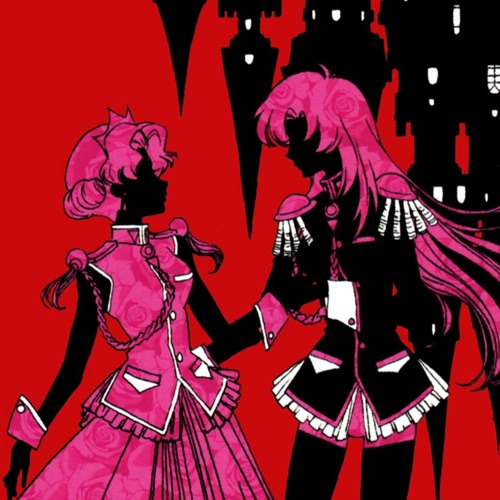
A fairytale-soaked, visually charming, sonically captivating, queer 90s work of art filled with surreality & symbolism, conveying critiques on the oppressive systems we live under and the powers that be.

Calling into question and confronting the patriarchy, toxic masculinity, societal roles and rules, the idea of gendered clothing, false ideals, privilege, power imbalances, abusive and manipulative relationships, the construct of family, the unjust hierarchies, indoctrination by the status quo and heteronormativity to name a few? It may sound like too much to take on but the show's got it and highlights these themes in subtle as well as very explicit ways which can seem repetitive at times yet fit in thematically.
All of this being said, it does warrant content warnings e.g. for the depiction of physical abuse, so I recommend you look them up before diving into it right here.
The exploration of the ensemble cast's intrapersonal relationships and internal conflicts, and how the power structures and societal rules shape them with entire episodes dedicated to seeing things from each character's perspective makes it the most thoroughly explored ensemble cast I've ever seen. It really makes use of the 39 episodes runtime in order to give each character room to breath, confront and grow.

This show ripe for an in-depth analysis of each episode and the symbolism and surrealism leaves open vast room for individual interpretation of this work. I certainly felt it and gave myself time inbetween each episode to think about it what happened, what the symbolism and surrealism shown means and went back to look at certain scenes to piece things together in my mind more often than not.

Come to think of it, I've always felt engaged and intrigued with this show. There are comedic elements scattered in throughout the show to alleviate the tough and darker themes; and the soundtrack is woven perfectly into every scene. Plus, the OP and EDs for this show absolutely slap and it's one of those I've never once skipped.

Be-Papas & everyone who worked on this have truly created something special which resonated with me on multiple levels and gave me hope in these rough times we're in and I can't thank them enough for it.
If you want something to sink your teeth into, which is very importantly gay and revolutionary as heck - timelessly so as it's quite explicitly about moving forward and dealing with the unjust, unsustainable and oppressive systems they live under - I can't recommend it enough.
__Viva la revolución!__
SIMILAR ANIMES YOU MAY LIKE
 ANIME DramaMawaru Penguindrum
ANIME DramaMawaru Penguindrum ANIME DramaYuri Kuma Arashi
ANIME DramaYuri Kuma Arashi ANIME ActionFlip Flappers
ANIME ActionFlip Flappers ANIME ActionShin Seiki Evangelion
ANIME ActionShin Seiki Evangelion ANIME DramaPrincess Tutu
ANIME DramaPrincess Tutu ANIME ComedySarazanmai
ANIME ComedySarazanmai ANIME ActionKill la Kill
ANIME ActionKill la Kill ANIME AdventureVersailles no Bara
ANIME AdventureVersailles no Bara
SCORE
- (4.1/5)
TRAILER
MORE INFO
Ended inDecember 24, 1997
Main Studio J.C.STAFF
Trending Level 2
Favorited by 4,799 Users


